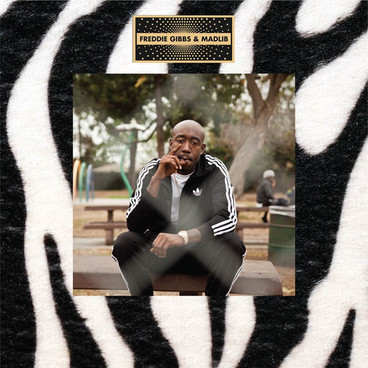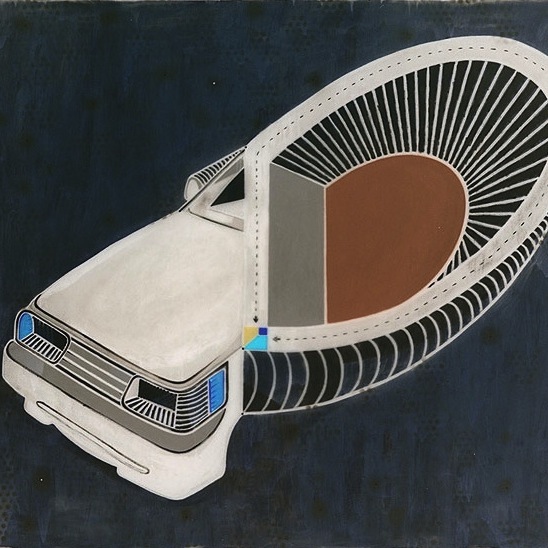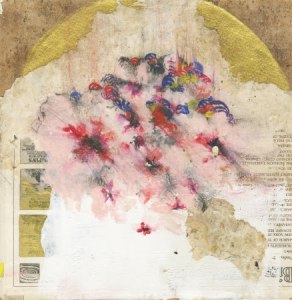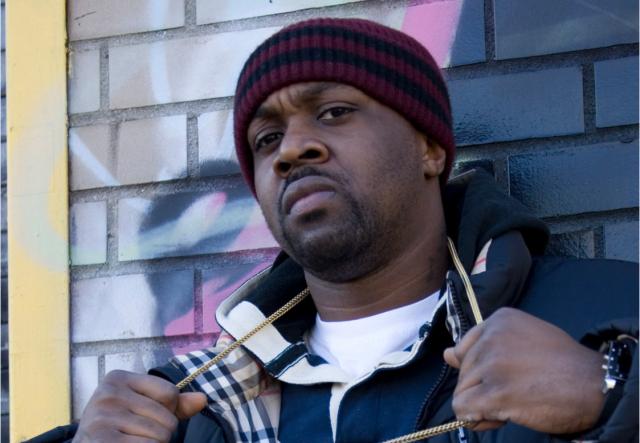There’s a lot of risk involved in being a weed rapper. Even if the heads show you love, others in turn may not take you all that seriously. A stoner’s anthem can even inadvertently doom an emcee’s prospects. Take the case of The LOX’s Styles P, who scored a brilliant solo hit in 2002’s ‘Good Times (I Get High)’ and earned Gold status for the corresponding LP. Since then, though, he’s struggled to find his footing, barring a few fortunate guest spots. He even went the regrettable sequel route five long years later with ‘Blow Ya Mind.’ If you’ve copped P’s most recent output, chances are good you’ve got a Swisher Sweets package or some Rizla papers somewhere on your person right now.
Similarly, so-called cloud rappers like Wiz Khalifa continue to struggle with pleasing a single-issue cannabinoid cult following while attempting to fulfill the commercial expectations associated with being on a major label. Pigeonholing and typecasting, after all, tend to lead to complacency, a phenomenon of diminishing returns that has stymied and killed many a career. The game only has room for one Snoop Dogg, that rare breed of entertainer able to adapt to just about any scenario and still maintain a role firmly atop the weed rap hierarchy.
Smoke DZA no doubt already knows this. Already embraced by the High Times set, he has clear incentives to expand upon these first impressions with Dream.ZONE.Achieve, conceptually loaded title and all. Here, he doesn’t quite box his way out of the cougher’s corner insomuch as he glides, steadily and gradually revealing a broader artistic palate and Harlem-bred lyricism. ‘City Of Dreams’ masterfully presents an ethos, borne out of real life city living and truly felt emotion, something only a handful of genuinely great New York rappers (think Nas, think Prodigy) have managed to wield successfully. This isn’t the nostalgic musing of a grizzled veteran nor the overactive imagination of a Joey Bada$$. Rather, Smoke DZA possesses the ability to make us grasp what’s happening now.
He’s a viable contender competing in a tin can era, the type of rapper that doesn’t get all showy with his lexicon when he knows he’s on a roll, impressing instead with that seemingly natural flow. Smoke spits on-point couplets amid lion’s roars (‘Count Me In’) and champagne dreams (‘Tropicana Roses’). He’s got nicknames and catchphrases but uses them as accents instead of impressions, peppering both faded jams and big boom bap business alike. Soul – sometimes grandiose, sometimes battered – pours honeyed through the speakers on cuts like ‘Maybe’ and ‘Ghost Of Dipset’, the latter of which features none other than Cam’ron himself. With BJ The Chicago Kid on the hook, breathless highlight ‘Robin Givens’ fundamentally flips Smoke’s script from dubious prescription to legitimately over-the-counter.
Freddie Gibbs & Madlib – Cocaine Piñata

Released a decade ago, Madvillainy placed Madlib in the hip-hop production pantheon, his name from then on spoken of as reverently as Dilla’s. MF Doom, however, casts an imposing shadow, and none of the beatsmith’s subsequent collabos (even with Talib Kweli!) could get him out of the shade. With the formidable Freddie Gibbs at his side, Madlib sees the light of day once again. Superior to Madvillainy by a few chin hairs, their devastatingly uplifting record elevates both artists. The beats and samples (‘High’, ‘Thuggin’) comprise a neo-blaxploitation score confiscated in a massive drug bust and exhumed from an evidence locker decades later. Mistreated by the industry, Gibbs shrugs off his setbacks and lyrically goes for the jugular. ‘Real,’ an unflinching and unflattering salvo directed at Young Jeezy, is the hardest diss recorded since Nas ethered Jay on Stillmatic. Sure, Doom plays the comic book baddy, but Gibbs might be the real thing. Better than any BET cypher, Piñata is the ‘1 Train’ Gotham deserves.
Kool A.D. – Word O.K.

Das Racist never quite lined up with the rest of New York hip-hop, repping with insular humor, quirky knowledge, and frequent bouts of weirdness. After dropping a prolific amount of material with mixtapes both solo and with Kassa Overall, the one known as Victor Vasquez cruises back in with what we’re meant to consider a proper album. With Dipset-quality production from Amaze 88, the seemingly unyielding ‘Open Letter’ crams self-referential easter eggs, lithely lyrical barbs, and bullet train-of-thought wordplay into a song that could soundtrack the summer. Word O.K. showcases that inimitable flow, a navelgazing dexterity delivered in a mutter. His habitual Rain Man tics endear more than repel on the Dirty South dramatics of ‘Special Forces’ or the re-up jazzmatazz ‘Hickory.’ Kool’s chameleonic qualities and gilded gutter poetry combine again and again and more of less rise to the occasion, albeit not much higher than that. Regrettably, some of his guests (Lakutis on ‘Tight,’ in particular) haven’t done him any favors, but the Kweli and Kass verses make up for it.
Rick Ross – Mastermind

By this point in his career – one built largely by borrowing a gangster mythology he had no intention of ever returning – you’d think Rozay might have moved past being surprised. His constant need to call back to his far less lavish beginnings only to roundly dismiss them with elaborate declarations of current wealth is a compulsion not unique to the Maybach Music boss. Yet for Ross, it’s starting to feel like a dead end. Pushing 40, he remains stilted, preoccupied with many of the same fleeting luxuries of his younger peers. A sluggish superthug, he’s achieved the dream but can’t fathom anything else. So he resorts to rehashing the works of his betters (‘Nobody,’ ‘What A Shame’) and his own discography with all the charm of a dead tooth. On ‘Sanctified’, Ross’ lachrymose, self-made comparisons to David Koresh invite chortling from anyone who listened to cult leader Kanye West’s preceding verse. It’s conceivable that Mastermind portends the start of his dynastic decline, staved off thus far by feature ubiquity and building Maybach Music into something bigger than him.
Teebs – Estara

This funny dichotomy between producers who write with rappers in mind and those who don’t has been both fueled and voided by the quirky, versatile Los Angeles beat scene. An unfettered composer of imaginative, experimental hip hop, Mtendere Mandowa, aka Teebs, isn’t likely to be listed in Jay-Z’s cellphone and probably doesn’t have much of a desire to end up there. Estara takes a more unified approach than some of his prior Brainfeeder releases, weaving organic elements in with willfully synthetic ones while maintaining a consistent head-nod-chin-scratch combo. Flecked with static, the ivory tickled pair ‘Piano Days’ and ‘Piano Months’ resembles a Kompakt pop ambient record given the H-Town chopped-n-screwed treatment. ‘Holiday’ makes a tasty temperamental aural soup of seemingly disparate, even fractious ingredients, while ‘Hi Hat’ brushes away some of the digital window grit to let sunlight warm the still-cold machinery. It’s difficult not to listen to this deeply evocative music and think in terms of visual pictures, of real world Polaroids one might store in a shoebox and revisit affectionately.


